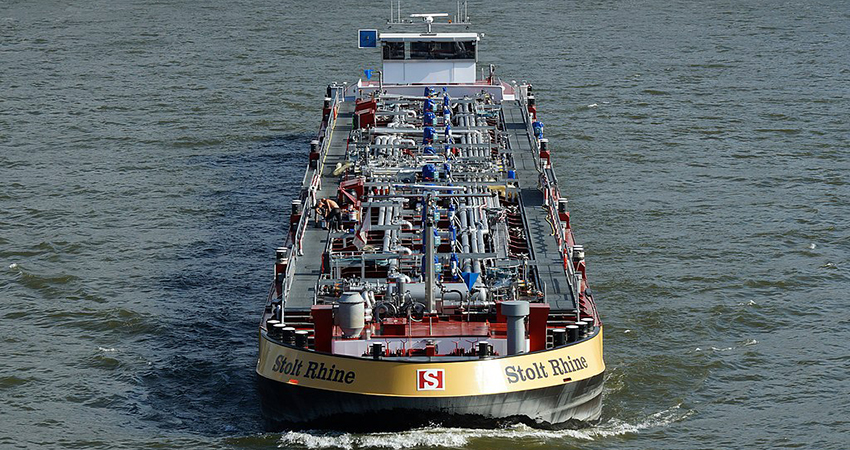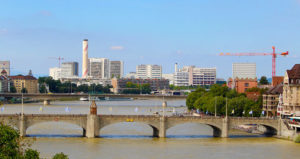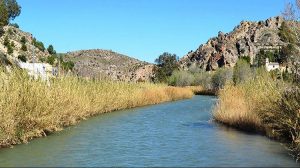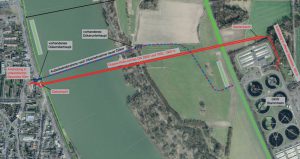Industrial pollution of the Rhine not improving

-
 Fergal MacErlean
Fergal MacErlean
Share article:
Industrial pollution of the Rhine rose last year again to a new high following a trend of poor results for the 1,230-kilometre long waterway. In the International Warning and Alarm Plan Rhine 2022 it is noted that the share of pollution incidents ‘held by industry has been rising, reaching a new peak’ of twenty events in 2022.
The report, published by the International Commission for the Protection of the Rhine (ICPR), is available to download in German, French and Dutch. The ICPR notes that the number of notifications with ‘a very likely industrial origin’ varies over the period from 1985 to 2022 by between two and 32 per year. Most declarations were recorded in 1989 with the lowest number of incidents recorded in 2002 and 2007.
No agricultural incidents
The number of reports of agricultural origin varies between one and three over the period from 1985 to 2022, peaking in 2013 with seven incidents. No pollution events linked to agriculture have been issued in the last two years. But incidents related to shipping comprise more than half of all recorded events over the 37-year period. These peaked in 2006 and 2008 and are mainly due to the presence of the gasoline oxygenates MTBE or ETBE.
Mainly chemical and oil spills
In the year under review, there were a total of 29 events, divided into 4 warnings, 25 informations and 4 reports of unknown chemical substances. A total of 13 chemical spills and eight oil spills were recorded. In 2022, the largest number of incidents came from the detection by analysis of industrial chemicals, such as 1,2-dichloroethane or Methyl Tert-Butyl Ether (MTBE). This substance is used as an anti-knocking agent for gasoline engines. It cuts emissions by raising the oxygen content of gasoline so it burns more completely.
Oily waters
Four reports relate to oily waters caused by shipping and involved diesel or hydraulic oils. Four other events involving mineral oils came from an accident at the Rhinau hydroelectric plant, a breakdown at the Leverkusen chemical park, a heavy rain event and an accident at the Krupp Mannesmann steelworks.
Detection at WWTP
In addition, some substances or groups were reported only once, e.g. atrazine, phenoxyacetic acid or naphthalene. The highly toxic phenoxyacetic acid was detected at a wastewater treatment plant in Germany’s Ludwigshafen, with a measured flow of 154kg.
Warning system
The Dutch CPIA R7 analysis station, which works very closely with the CPIA R6 in North Rhine-Westphalia, is – geographically speaking – the last station in the Rhine basin. The analysis station is located in Lobith and the declarations are sent by the Dutch water management centre. In the Netherlands, information on water pollution is passed on to downstream partners through the Dutch Internet-based warning and alert system Infraweb. Through this interface, the Netherlands can receive and respond to German warnings, information statements and search and react to them if necessary. In 2022 a large drive took place to improve the reliability of this interface and to test the system on a monthly basis.
Unknown discharges
Until now discharges in the Rhine river basin remain unknown. The Dutch river water association RIWA-Rhine proposed in 2021 to make discharge permits available in the central documentation system of the International Commission for the Protection of the Rhine. The ICPR rejected the proposal and wrote to RIWA to say that such a system could not be put in place because countries or federal states are responsible for the permits.
River Rhine
The Rhine which flows through six countries before entering the North Sea in the Netherlands via the Rhine–Meuse–Scheldt delta strongly supports industrial production, with approximately 20% of the world’s chemical industries manufacturing along the river principally in the Cologne region.















